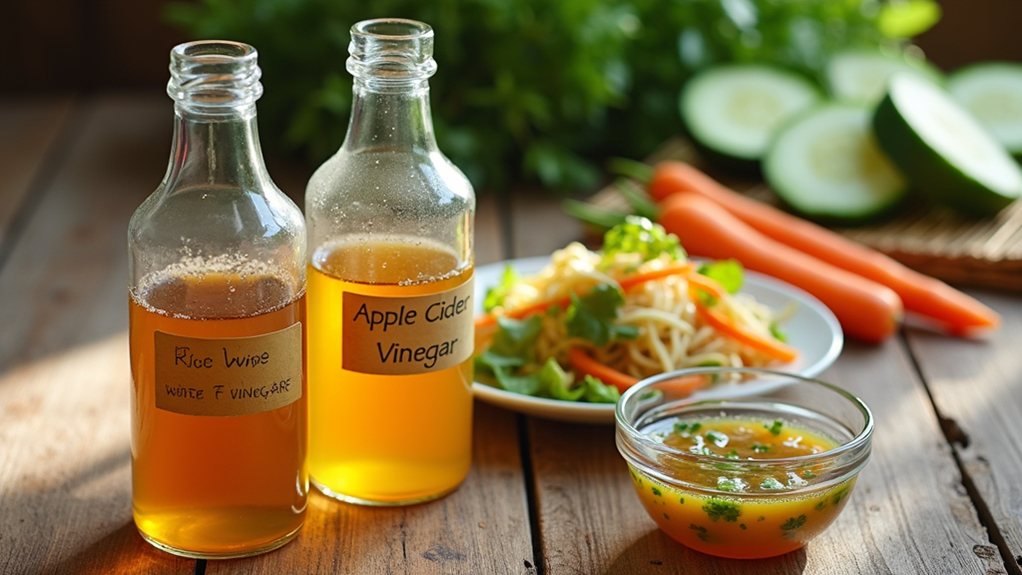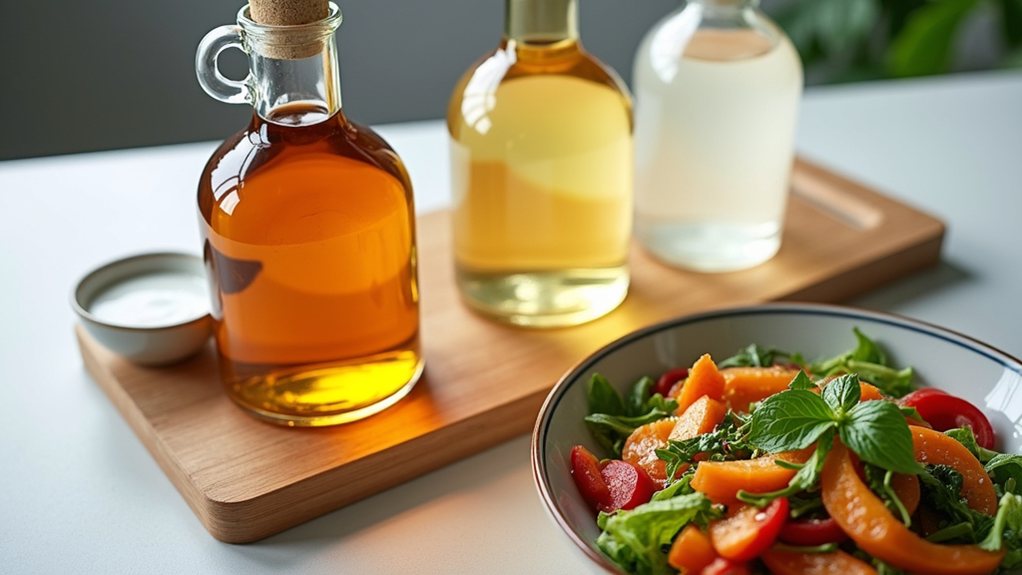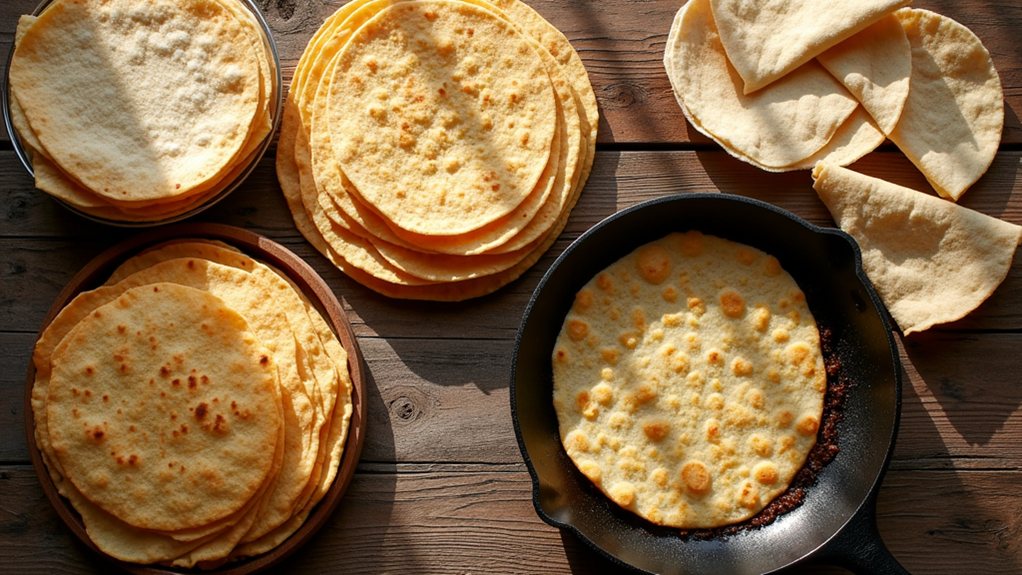Many home cooks encounter the frustrating scenario of missing rice wine vinegar while preparing Asian dishes. Apple cider vinegar offers a remarkably similar flavor profile, with its subtle fruitiness and natural acidity that works beautifully in dressings, marinades, and stir-fries. A simple adjustment with water and a pinch of sugar transforms this common pantry staple into an ideal substitute that few would distinguish from the original ingredient. The question remains: what makes this alternative particularly effective where others fall short?
Apple Cider Vinegar: The Perfect Rice Wine Substitute

Four versatile alternatives to rice wine vinegar can transform any Asian-inspired dish when this essential ingredient is unavailable in your pantry. Many home cooks face the challenge of finding authentic rice wine vinegar, particularly in areas without specialized Asian markets.
The mild, slightly sweet acidity that rice wine vinegar brings to sushi rice, pickled vegetables, and dressings can be approximated with readily available substitutes, each offering their own nuanced flavor profiles.
Apple cider vinegar stands out as perhaps the most accessible and effective alternative. Its subtle fruitiness and natural sweetness closely resemble the flavor notes of traditional rice wine vinegar, though it may require dilution with a small amount of water and a pinch of sugar to perfectly mirror the original. Similar to how artichoke dip combines simple ingredients to create complex flavors, these vinegar substitutions offer surprising depth in your recipes.
Apple cider vinegar's natural sweetness makes it the perfect pantry hero when rice wine vinegar goes missing.
Home cooks can use apple cider vinegar in equal proportions to rice wine vinegar in most recipes, making the substitution straightforward and hassle-free.
Champagne vinegar, though slightly more expensive, provides an exceptionally light and crisp flavor that works beautifully in delicate dressings and marinades. It's worth noting that champagne vinegar is the closest match to rice wine vinegar among all alternatives. The refined acidity of champagne vinegar doesn't overwhelm subtle ingredients, making it particularly suitable for seafood dishes where balance is vital.
White wine vinegar offers another solid option, though its stronger acidity means using about 25% less than the recipe calls for, perhaps with a touch of honey to round out the flavor profile.
For those willing to experiment with flavor fusion, mixing white distilled vinegar with mirin (Japanese sweet rice wine) creates a surprisingly authentic substitute. This combination brings both the necessary acidity and the characteristic sweetness that defines rice wine vinegar.
The ratio typically works best at three parts vinegar to one part mirin, adjusting to taste. For summer gatherings, consider using these alternatives in a refreshing coleslaw with dried cranberries for an unexpected sweet-tart flavor dimension.
While purists might note subtle differences in the final dish, these alternatives guarantee that a missing bottle of rice wine vinegar never stands between a cook and their culinary ambitions. Each substitute brings its own character to recipes, sometimes creating new flavor dimensions worth incorporating into your regular cooking repertoire.
Ambitious home chefs may consider making DIY rice vinegar by fermenting cooked rice with water for 2-3 weeks, allowing complete control over ingredients and developing a more complex flavor profile.





